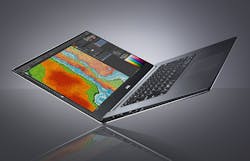Last month, Scott Darling, president of Dell Technologies' venture arm, sent four emails to his new CEO over the course of an hour. He didn't wait long for responses. After each message, Michael Dell responded within about five minutes, and by about 11:30 p.m. the last communication on new investments was wrapped up.
"Speed matters," said Darling, who led venture capital at EMC's venture arm before its acquisition by Dell in September. "He completely gets entrepreneurship."
Now, Dell wants to publicize its investments. The venture arm -- which kept a very low profile when it was part of EMC -- is coming out of "stealth," including disclosing portfolio companies as part of a new push to highlight young businesses. The company is spending about $100 million annually on the funding of startups, he said.
Michael Dell -- after closing the merger with EMC -- is investing in new ways to bolster his company's lineup that provides gear and modern software for data centers. Looking for an edge against rivals such as Hewlett Packard Enterprise, the venture unit, called Dell Technologies Capital, is likely to invest in 20 new startups, or perhaps more, this year, Darling said.
"He is the founder of Dell," said Jeremy Burton, chief marketing officer at Dell Technologies, who also joined the company from EMC. "I think he sees that companies we invest in can get a lot of value from the Dell brand."
All told, Dell Technologies Capital has invested in more than 70 startups. It puts in around $3 million to $10 million initially and usually in the A or B rounds, Darling said. The company provides more money in later rounds.
The investments cover a broad swath of technology -- as long as it falls under the category "infrastructure," Darling said. That includes data storage, artificial intelligence, cloud computing and analytics. He said it's important to stay focused on these areas where his team has know-how and experience.
"We're trying to be very active in the places we're domain experts -- not get distracted," Darling said.
Darling, who had been at EMC since about 2012, made many of these investments while keeping the venture arm out of the spotlight, avoiding, for example, using its name in press releases for funding rounds. That secrecy helped ensure EMC would know about key technologies without broadcasting it to competitors.
But while that might have made sense in the past, the deal created Dell Technologies, a behemoth in the tech world in terms of sales and employees, so it's now time to highlight investments to others, the executives said. In addition, while Michael Dell wants to showcase these entrepreneurs, there have been requests by the startups themselves to tout the name behind the funding, Darling said.
Dell also had a venture arm prior to the acquisition, and the two groups have merged, Burton said. Some of those investments will be in the new portfolio -- but the majority will be from the EMC side, along with the philosophy and structure as well, he said.
The venture arm offers funding and expertise — and the opportunity to sell to businesses that are customers of Dell Technologies. This can help young companies in particular looking for help in landing larger accounts.
Some of the investments at the unit include Graphcore, which provides processors that help speed up machine learning technology. Another is Edico Genome, creator of a processor that helps with the massive workloads associated with DNA sequencing.
BlueData Software Inc., is another startup that received funding in 2015 from then EMC's venture unit, according to Kumar Sreekanti, the co-founder and CEO. His company provides software that aims to make the process for big data analytics more affordable and easier to manage. The investment by EMC has been a good move for the company, he said.
"I'd describe the relationship as highly consultative -- not just transactional," Sreekanti said in an email. "Their recommendations have been very constructive, providing both strategic and tactical advice for our management team."
By Brian Womack
About the Author
Bloomberg
Licensed content from Bloomberg, copyright 2016.
